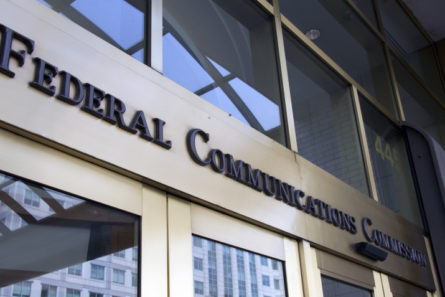New Legal Analysis: Regulatory Implications of Turning Internet Platforms Into Common Carriers
Neil Chilson

The content moderation policies of major internet platforms like Facebook and X (formerly Twitter) have faced escalating criticism in recent years. Many conservatives now argue that because these platforms exhibit political bias and routinely censor right-leaning political views and news stories, some sort of government regulation is required. Standing in the way, however, is the First Amendment.
To get around First Amendment constraints, a novel legal theory has emerged: internet platforms should be regulated as “common carriers”—that is, internet platforms should be required to treat all comers “equally.” Though this theory relies heavily upon an analogy to telecommunications law, it appears that “common carriage” has become a euphemism for broader public utility regulation (which would require some sort of dedicated regulator and enabling statute). But a new legal analysis by Lawrence Spiwak at the Phoenix Center for Advanced Legal & Economic Policy Studies entitled Regulatory Implications of Turning Internet Platforms into Common Carriers warns that this approach could backfire terribly.
Spiwak’s paper begins with an in-depth analysis and rebuttal of arguments made by law professors Adam Candeub and Eugene Volokh that internet platforms should be regulated as common carriers like telephone companies. Spiwak contends that the analogies drawn to current telecommunications regulation are flawed and fail to withstand legal and economic scrutiny.
The paper next examines the relevant court cases on regulating internet platforms as common carriers, including a notable concurrence by Supreme Court Justice Clarence Thomas in Biden v. Knight First Amendment Institute. As with the surveyed literature, Spiwak demonstrates that some of the cases also mischaracterize telecommunications law.
After reviewing the literature and caselaw, Spiwak’s paper highlights several serious concerns with the proposal to impose common carrier status on internet platforms:
First Amendment Issues: Spiwak argues that calls for common carrier regulation of internet platforms are, at bottom, an attempt to regulate speech online using economic regulation designed for Ma Bell-style monopolies. This argument makes little analytical sense, and would force us to cross, as Spiwak writes, the “Regulatory Rubicon.” Taken to its logical conclusion, treating internet platforms as common carriers could thus allow the government to control speech and content across the internet. This outcome raises monumental First Amendment questions about censorship that supporters of the common carrier approach fail to consider.
Fifth Amendment Issues: While it is easy to propose an idea in theory, Due Process requires specifics. Spiwak notes that none of the proposals for common carrier regulation provide constitutionally-sufficient detail on what this regulatory regime would look like or how this new regulatory regime would work in practice.
Internet Platforms Are Not Like Phone Companies: Internet platforms do not act as pure “dumb pipe” communications networks that merely transmit information, nor would consumers like it if they did. Instead, platforms actively engage in content curation, moderation, and editing to customize the user experience and enforce community guidelines. Treating them like telecom carriers misrepresents how internet platforms operate.
Common Carrier Regulation Doesn’t Require Total Neutrality: Common carrier status does not prohibit all discrimination, only unreasonable discrimination. Under long-standing public utility law, carriers can legally engage in reasonable discrimination between customers and services. Imprecisely equating common carriage with a blanket non-discrimination mandate misrepresents common carrier regulation.
No Protection from Government Pressure: Contrary to claims, designating internet platforms as common carriers would not immunize them from government censorship demands. In fact, it may increase government leverage through regulatory pressure points. Firms may comply with requests to censor certain content to gain favor and avoid penalties.
Loss of FTC Authority: Classifying internet platforms as common carriers would immediately eliminate Federal Trade Commission (FTC) oversight and authority over these firms under current law. This loss of jurisdiction would create a significant regulatory gap without new legislation.
Federalism and Jurisdictional Issues: Justice Thomas, among others, claims that internet platforms are just another form of communications networks. If so, then the interstate nature of internet platform services raises complex federalism issues. Individual states lack authority to regulate interstate communications services, which fall under the Federal Communication Commission’s (FCC) jurisdiction. Allocating state and federal roles would be legally challenging and could, as Spiwak writes, subject the internet to a “Death by Fifty State Cuts.”
No Cost/Benefit Analysis: Regulation can provide benefits but it is not costless. And firms are not passive recipients of regulation. Spiwak notes that proponents of common carrier regulation have generally failed to conduct such a cost/benefit analysis, and the one proponent who does curiously concedes that the costs may well exceed the benefits.
Unintended Consequences: There are high risks that regulating internet platforms as common carriers could backfire and result in harmful unintended consequences. For example, onerous regulations could entrench dominant incumbent platforms by raising barriers for new entrants. Moreover, Spiwak warns that other internet-based businesses—ranging from online retailers to video streaming platforms—could easily be drawn into this new regulatory morass.
Rather than endorse prescriptive regulation, Spiwak concludes that the better solution is to continue letting market competition and user choice address concerns over internet platforms’ content moderation policies. Laws and regulatory frameworks designed decades ago for economic oversight of communications utilities may lead to disastrous unintended consequences when applied to contemporary free speech issues on social media.
Before rushing to regulate internet platforms as common carriers, lawmakers and the courts should heed Spiwak’s warnings about the legal complexities and likely counterproductive effects of imposing public utility-style regulations on these digital platforms. There may be no easy governmental solution to concerns over internet platforms’ content moderation, but rigid common carrier mandates tailored for a different time and industry will probably create more problems than they solve.

Topic
Sponsor
Federalist Society’s Telecommunications & Electronic Media Practice Group
The Federalist Society and Regulatory Transparency Project take no position on particular legal or public policy matters. All expressions of opinion are those of the author(s). To join the debate, please email us at [email protected].




